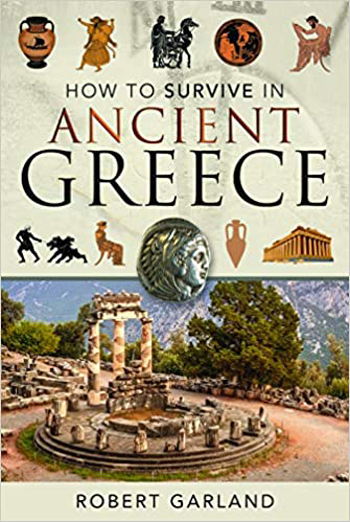
As a certified teacher of Latin and Greek, for 22 years it saddened me that none of the schools at which I worked asked me to teach Greek. Until now! Currently I am teaching an 8th Grade Ancient Greek elective. Thus, How to Survive in Ancient Greece provided me with a timely and wryly humorous brush-up of Greek culture as well as the highlights of Ancient Greek history. The conversational tone of the author's voice draws the reader in and retains their attention, unlike the Greek History books of my own high school days. If I was teaching a Classical Civilisation class or an Ancient History class rather than a CI-focused Greek language elective, I would absolutely use this book as a resource in no small part due to its accessibility and the author's way of approaching the less savoury aspects of Greek life. For example, Garland approaches the treatment of women and enslaved people factually, but nevertheless presents the facts as something that would be seen as a double standard and not to be tolerated in our own time and society.
The book is divided into sections that usefully reflect the book's title How to Survive in Ancient Greece. For example, the section on ‘Things You Should Know’ includes information on how to get around Athens, how to survive without the Internet, email or Twitter, and the section on health and hygiene gives useful advice on the sort of diseases you can look out for during your sojourn in the Classical city (spoiler alert: you are likely to die young or at least if you don't die young you will probably have to deal with the after-effects of some nasty disease or accident you had earlier in life!). I particularly enjoyed reading the Testimonials section featuring ‘interviews’ with Greeks from different walks of life and different parts of the Greek world as it allowed the reader to confront that world through different lenses (an Athenian girl, a (male) politician, a victim of crime, a non-Athenian sex worker, a Spartan soldier, to name a few). As I have mentioned in a previous review, it seems like a particularly good time in history to encourage our students to gain empathy for the lives of others through seeing the world from different perspectives.
A reader of How to Survive in Ancient Greece will surely wrap up their study of this book by concluding that the theoretical decision to relocate in time and space to Classical Athens is one to weigh up with great consideration.


